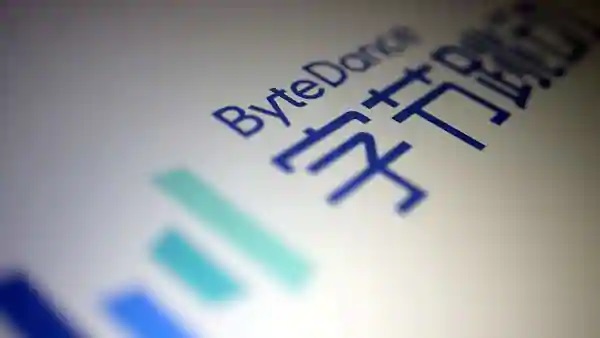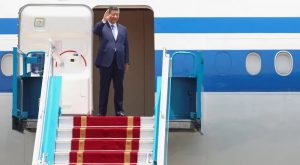Chinese tech giant Bytedance is looking at capital spending of more than 150 billion yuan ($20.6 billion) this year, mostly on artificial intelligence.
The company, which owns TikTok, will spend half of that amount abroad on AI-related infrastructure, such as data centres and networking equipment, according to two sources who spoke to Reuters.
The main beneficiaries of the spending will be chipmakers Huawei Technologies and Cambricon Technologies, plus US supplier Nvidia, the people said, declining to be identified as the information was confidential.
ALSO SEE: Trump Seen Blocking the ‘De Minimis’ Trade Loophole With China
The spending will help ByteDance defend its AI lead at home. Having begun 2024 as a laggard, it now has over 15 standalone AI applications – more than rivals such as Baidu and Tencent Holdings – including top chatbot Doubao.
The money will also reinforce AI offerings abroad at a time when ByteDance is grappling with the future of TikTok in the US.
US President Donald Trump on Monday signed an executive order for a 75-day delay in the enforcement of a ban on the short-video app that requires American firms to stop hosting TikTok unless ByteDance sells its US operations.
‘China softening on sale of TikTok’
Chinese authorities appear to be softening their stance on the fate of TikTok, possibly paving the way for Beijing-based ByteDance to begin talks with American investors, according to a report in the South China Morning Post on January 21, which cited people familiar with the matter.
“With US President Donald Trump’s recent enthusiasm over striking a deal on TikTok, Beijing is seeing the value of a fair arrangement for the sake of improving the bilateral relationship,” it said, quoting a person allegedly “briefed on the Chinese government’s considerations.”
However, a forced sale of TikTok might undermine the company’s plan for an initial public offering, after the company valued itself at $300 billion during a recent share buyback.
ByteDance, Huawei and Cambricon did not respond to requests for comment on Thursday (January 23). Nvidia declined to comment.
It was unclear how the 2025 plan compared with prior years as Bytedance is a private company that does not disclose financial details.
US move to tighten use of Nvidia chips
On Tuesday, the Financial Times reported ByteDance planned $12 billion for AI infrastructure. In December, The Information reported a plan to spend up to $7 billion to access Nvidia semiconductors outside China, which the US restricts high-tech chip exports to.
Bytedance “has built up computing capacity in Southeast Asia, particularly in Malaysia,” it said, adding that “though Chinese companies have been banned from purchasing Nvidia chips outside of the US since 2023, they have been able to secure access to chips through rental agreements with third-party data centre providers,” according to industry insiders.
But it noted that this loophole was closed last week by the Biden administration issuing new rules that the identity of both the owner and operator of the chips must undergo a review process. “While Trump could take a different stance on export controls, the regulations — if strictly implemented — would make ByteDance’s chip purchases overseas more difficult than ever.”
ByteDance is already the biggest buyer of Nvidia’s H20 AI chips, which the US chipmaker tailored for China in response to restrictions, Reuters reported in September.
The TikTok owner is also Microsoft’s biggest client in Asia for Nvidia chips accessible via cloud computing, sources have told Reuters.
Its AI apps in China include Doubao, meaning “bean bag”, with 75 million monthly active users, QuestMobile data showed.
It also operates text-to-video generator Jimeng and image generator Xinghui, as well as Kouzi, a platform for custom chatbot development, and Maoxiang, which offers role-play and emotional support.
Unlike domestic peers, ByteDance has created overseas counterparts for its biggest apps – internationally, Doubao is called Cici and Jimeng is Dreamina.
On Wednesday, ByteDance updated its flagship AI model – also called Doubao – aimed at challenging Microsoft-backed OpenAI’s reasoning model products.
Still, its spending is modest compared to US tech giants. Google parent Alphabet planned $50 billion for chips, data centres and other expenses last year, whereas Microsoft spent $55.7 billion in its fiscal year through to June 30 with a significant portion on AI infrastructure.
- Reuters with additional inputs and editing by Jim Pollard
NOTE: Additional text and a link was added to this report on January 23, 2025 to clarify details about Bytedance’s use of Nvidia chips in data centres.
ALSO SEE:
Biden Restricts Access to AI Chips to US Firms And Its Allies
US Rules to Limit Investment in China’s Chips, Quantum and AI
US Ban on Investment Not Good For AI Sector, China Says
If Legal Fight Fails, ByteDance ‘Would Prefer to Shut TikTok in US’
Forced Sale of TikTok is About Security, Not Free Speech, US Says
‘China Won’t Allow It’: TikTok Compares Divestiture to Chip Ban
Trump Says He Will ‘Never Ban TikTok’ if Elected – NYPost
TikTok Hit by US Legal Barrage For ‘Harmful’ Impacts on Kids
Nearly Half of Gen Z Wish TikTok Was Never Invented: US Poll
Nvidia’s New AI Chip for China Priced Close to Huawei Alternative
























